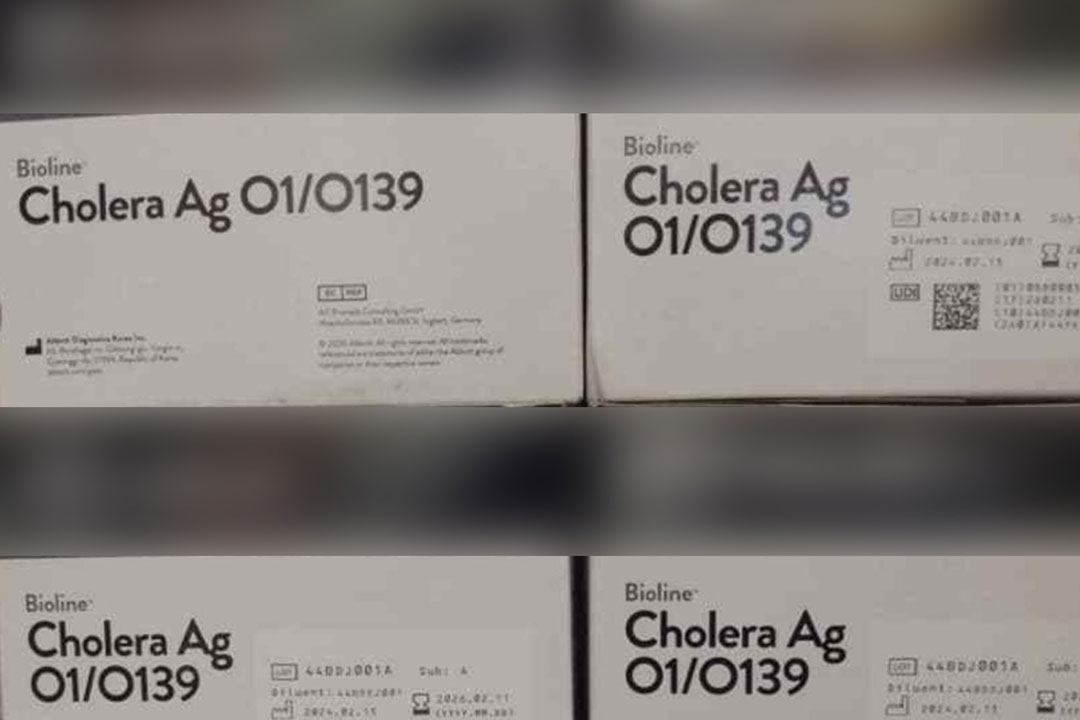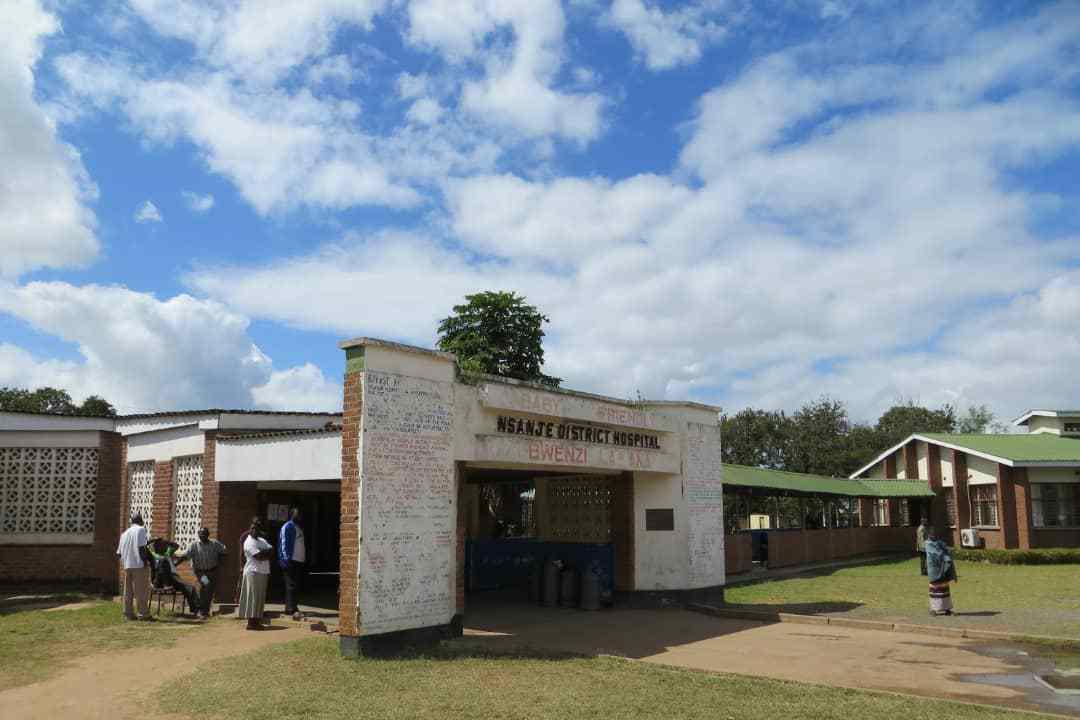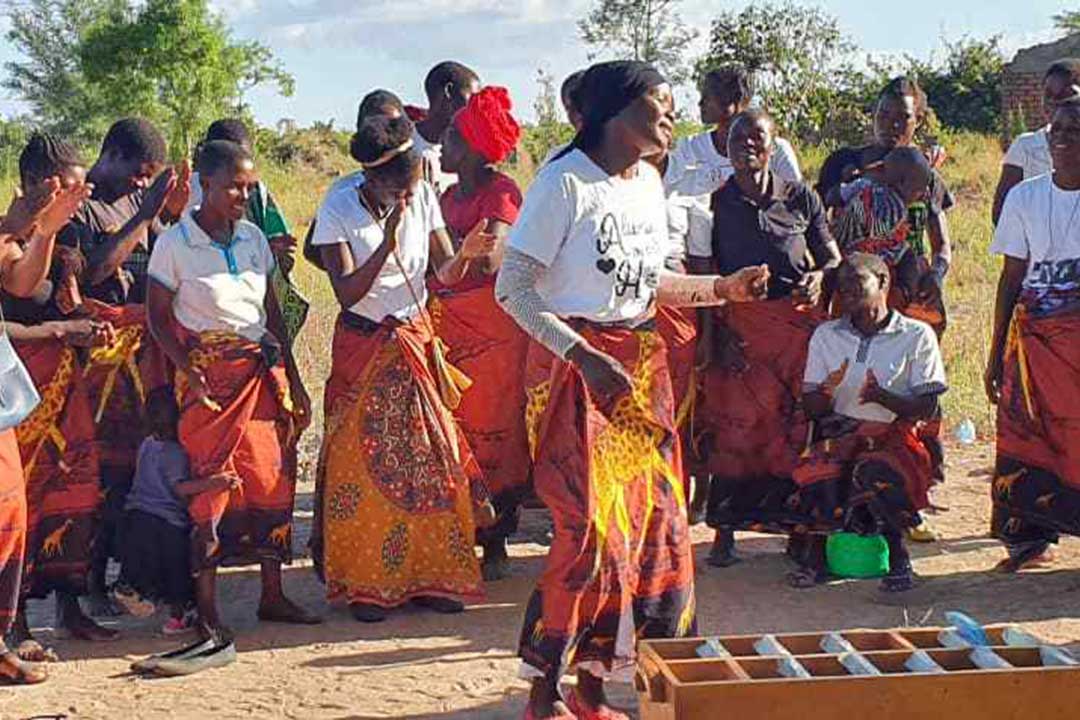From COVID-19 to cholera: Malawi’s health workers fight to get immunisation back on track
First COVID-19, then a prolonged cholera outbreak – overlapping crises have stretched Malawi’s health workers to breaking point, as routine immunisation suffered. Recovery is now top of the agenda.
- 26 April 2023
- 9 min read
- by Josephine Chinele
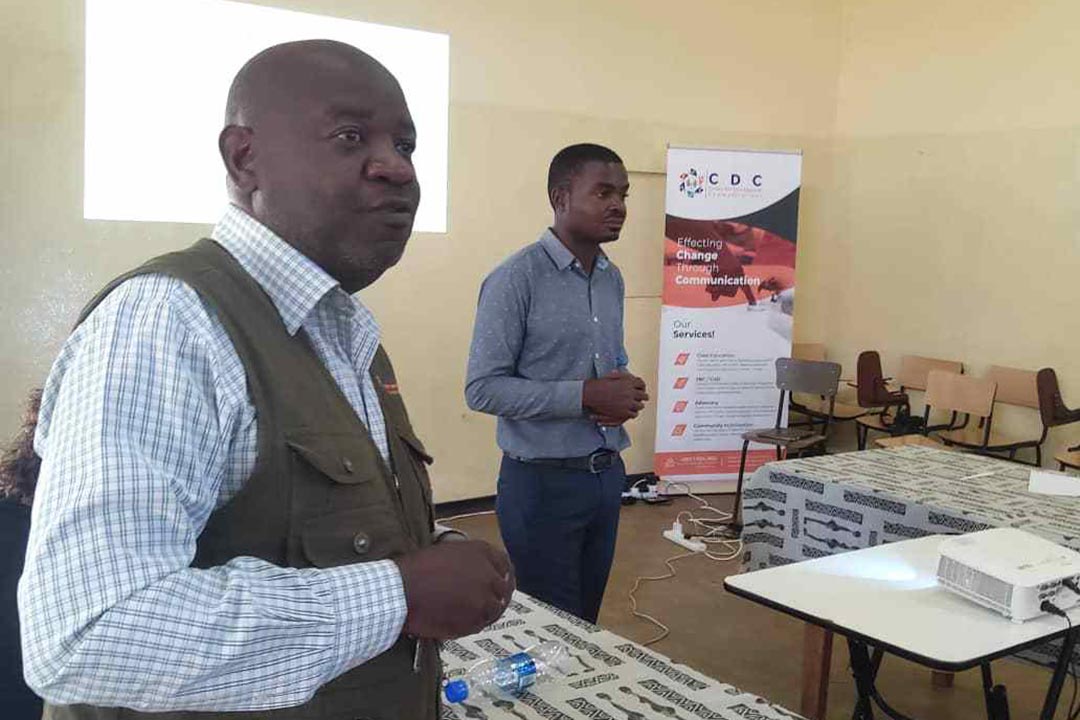
The arrival of COVID-19 forced health worker Sosten Kalumo, of Mulanje in southern Malawi, out of his regular work. COVID-19 vaccines were added to an already hectic vaccination schedule.
"We haven't had serious vaccine stockouts. But we have been very busy with providing vaccines to children, [while] at the same time convincing their parents to receive COVID vaccines. It wasn't easy in the beginning due to a high hesitancy for the COVID vaccine. People had reservations for routine immunisations too," recalls Kalumo, a Health Surveillance Assistant (HSA) whose assigned catchment area has more than 6,000 people.
“I personally have been over-stretched as I have had to work beyond usual working hours. Health workers usually have no weekend and public holiday off-duty days due to inadequate human resources. We have no choice but to double-task.”
– Masilina Msamanyada, Mulanje District Health Office
Recently many of his fellow health workers found themselves also fighting an older foe: cholera. Some parts of Mulanje are cholera hotspots, where oral cholera vaccines – provided from the Gavi-supported global stockpile – have also been added to the vaccination schedule.
Kalumo's area has so far escaped the recent outbreak, however other threats have been emerging over the border in Mozambique.
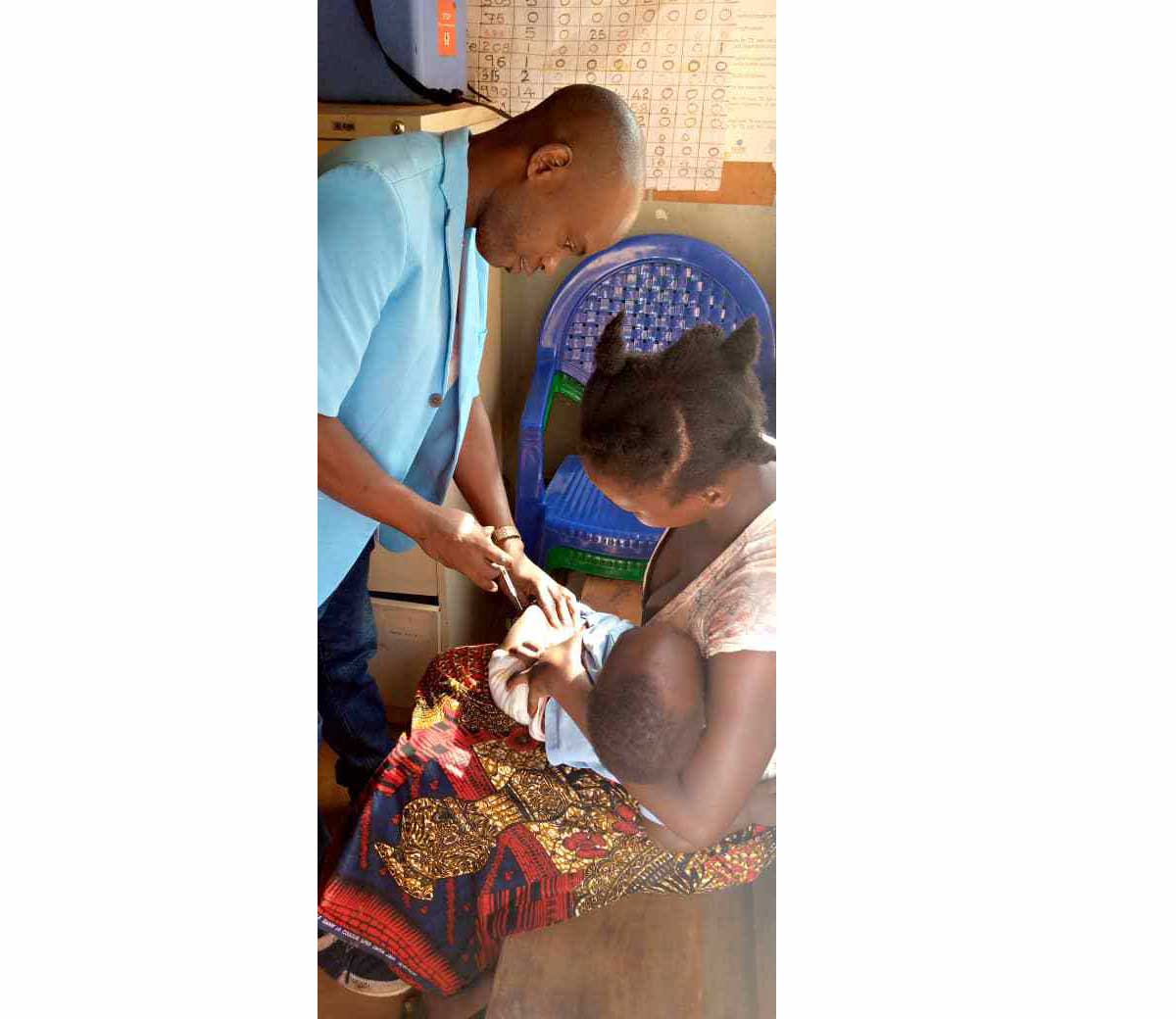
Credit: Kalumo
"We are at a busy position because we have been registering suspected polio cases from Mozambique, which were later confirmed to be positive," said Kalumo. "So we anticipate this may be the case for other contagious diseases as well."
And COVID-19 is still making its presence felt, with 41 active cases as of April 23, 2023. Cumulatively the country has had 88,624 confirmed COVID-19 cases and 2,686 deaths, according to Malawi's Ministry of Health COVID-19 dashboard.
Overstretched health workers
Kalumo isn't alone. The past three years have been hard for many frontline health workers.
Masilina Msamanyada, who works on Integrated Disease Surveillance and Response (IDSR) for Mulanje District Health Office, admits the overlapping responses to the various epidemics facing the country have been overwhelming.
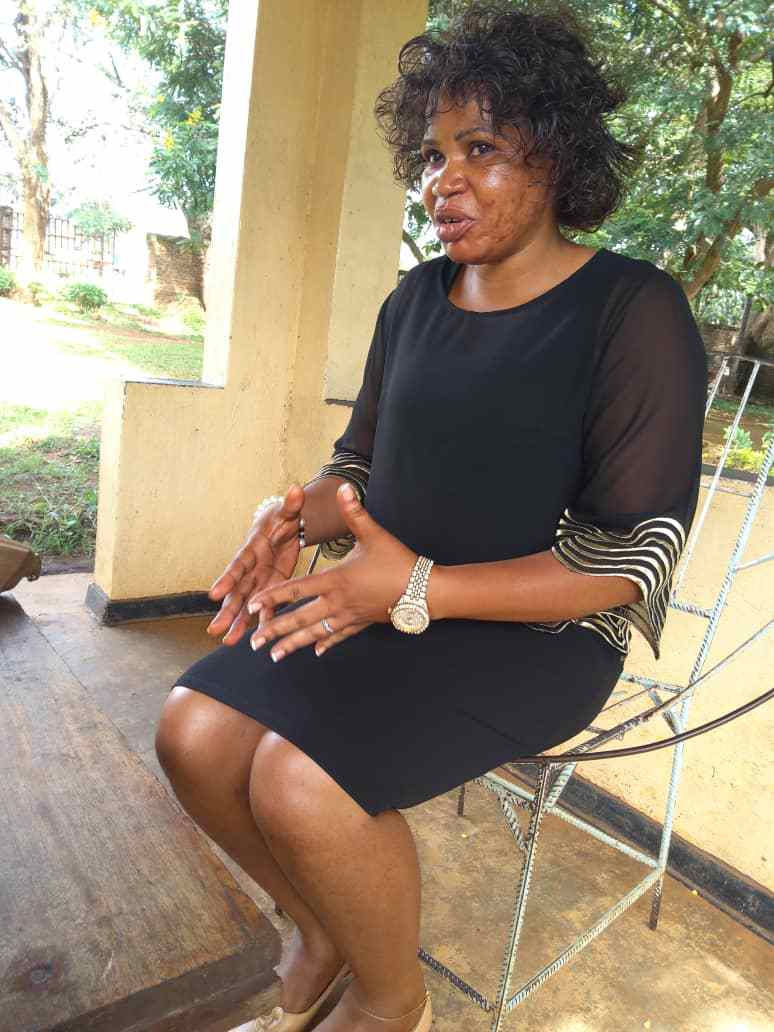
Credit: Josephine Chinele
"I personally have been over-stretched as I have had to work beyond usual working hours. Health workers usually have no weekend and public holiday off-duty days due to inadequate human resources. We have no choice but to double-task," she says.
"Public health emergencies always overwhelm health workers as they have to [go the] extra mile in saving lives. Some routine services suffer along the way; this is unavoidable. We have also been alert here, because we are a border district and at any time we might have an increase in cholera cases."
Prolonged outbreak
For 50 years now, Malawi has been fighting episodes of cholera outbreaks. This outbreak has been different – a longer, larger year-long outbreak. Since March 2022, the current epidemic has stretched the routine operations of Malawi's health system.
Between April 14 and 20, 2023, Malawi registered 53 new cholera cases every day on average. Cumulatively, the disease has been confirmed in 58,063 people and it has claimed 1,741 lives.
“This is a health issue so we have taken the integration route, working with health experts at district level, including routine immunisation experts. When we go to communities, we don’t only talk about COVID-19, we also include all other vaccines, including routine under-five immunisations. No health issue can be handled in isolation.”
– Fred Yiwombe, CDC Executive Director
To complicate matters even further, in March 2023 Malawi was hit by Tropical Cyclone Freddy, which displaced about 600 people. Most of them are living in temporary shelters with compromised water and sanitation facilities, posing a high risk of waterborne diseases, including cholera.
In a statement, WHO Representative for Malawi Dr Neema Rusibamayila Kimambo says the effects of Cyclone Freddy both on health and water and sanitation systems could potentially threaten the progress made in controlling the cholera outbreak in Malawi, with a continuous downward trend observed over the recent weeks.
"As WHO, in collaboration with UNICEF and other partners, we are supporting the Ministry of Health to safeguard the gains we have acquired in responding to the current cholera outbreak, with oral cholera vaccines as an important intervention," she says.
Cholera messages, hand washing instructions, buckets of water or hand washing facilities, have cropped up in most public places, countrywide. Cholera vaccination has become the norm and a requirement to get to certain places, or receive some services.
He says apart from the weekly meetings and continuous communication with neighbouring countries, the Ministry has been encouraging community health workers to work with village health committees to hold frequent meetings in the communities, where people are encouraged to get vaccinated against diseases and observe all preventive measures.
Have you read?
"The communities are also encouraged to report any symptoms of diseases like polio, measles and COVID-19, among others. We equip these communities with all necessary health information," Chikumbe elaborates.
The cholera vaccine roll-out
In addition to the ongoing communication messages, the Ministry of Health has been providing Oral Cholera Vaccine (OCV) to manage the outbreak.
"The vaccine is not a lifelong protection against cholera. When one has the first dose, they are protected for one year. When they have the second dose, they are protected for five years. This is why we have always encouraged hygiene and sanitation as a sustainable prevention means," Ministry of Health spokesperson Adrian Chikumbe says.
I think we have taken it for granted that Malawi easily accepts vaccines but it has been a struggle. This is why until today, we have not achieved the target numbers of people vaccinated against COVID-19. That demonstrates that we should not take people for granted; there is more that needs to be done within our communities.”
– Dr Mike Chisema, EPI Coordinator
Malawi has recently received an additional 1.4 million oral cholera vaccination doses from the International Coordinating Group (ICG), with support from Gavi. A campaign began this week in hotspot districts of Lilongwe, Thyolo, Dedza, Mangochi and Salima.
Coordinator of the country's Expanded Programme on Immunization Dr Mike Chisema says oral cholera vaccines are an important intervention because the vaccine prevents people from contracting cholera and at the same time has the potential to reduce disease severity. "It's a plus and offers an opportunity to protect masses in hotspot areas."
Damage to routine immunisation
Alongside cholera and COVID-19 vaccinations, routine immunisation of under-five children is ongoing – but has been squeezed by the public health crises.
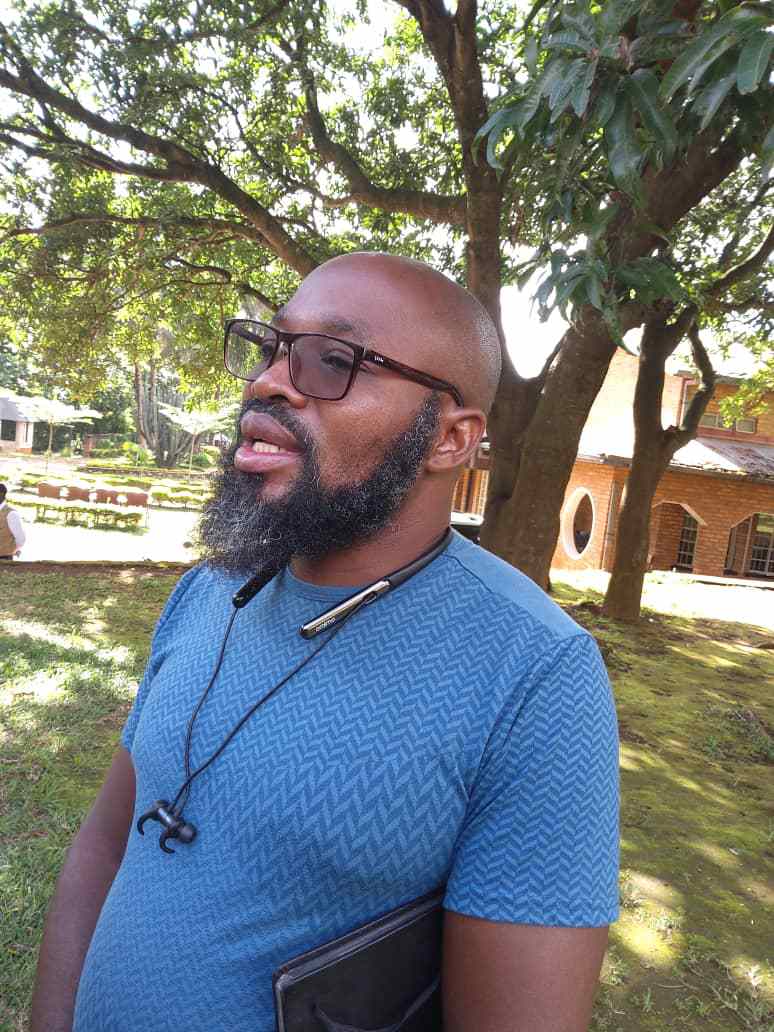
Credit: Josephine Chinele
"COVID-19 and cholera vaccines administration automatically became an issue of competing priorities because they are an emergency. Our efforts have been divided. We were forced to double our efforts to do the needful to fight the diseases," says Mulanje District Hospital spokesperson Chipiliro Mjojo.
“Two weeks ago I was in Blantyre, Chikwawa and Nsanje districts on routine immunisation assessments. Uptake has greatly improved now. I believe the inclusive community engagement campaigns have done wonders.”
– Maziko Matemba, Executive Director for Health and Rights Education Programme
"We had to [make] do with the little that we had to serve the situation. Our situation has always been challenging because we are a border district; we serve more people as we usually have people from Mozambique."
Alarmingly, Mjojo says, routine immunisation uptake and general outpatient department attendance dropped last year due to suspected misconceptions and misinformation about COVID-19 and cholera vaccines.
"Since the cholera vaccines weren't enough, Mulanje had to prioritise certain areas for the vaccines because they were high-risk areas. It's however impressive that cholera vaccine uptake has been good and there is still high demand for it in areas which weren't prioritised, unlike COVID-19 vaccines," he explains.
Behaviour change communication
According to the Ministry of Health, Mulanje is one of the least COVID-19 vaccinated districts in Malawi. It has vaccinated just 12% of its target population of nearly half a million.
A study by the Centre for Development Communication established that the high vaccine hesitancy is linked to political concerns, with false rumours swirling that vaccines could be a weapon against them. This suspicion follows remarks that some politicians made prior to the 2020 rerun presidential elections, alleging that there is no COVID-19.
CDC Executive Director Fred Yiwombe says his organisation, in collaboration with health experts from Mulanje district hospital, has been working on community engagement in order to demystify all the myths and misconceptions through Social Behaviour Change Communication.
"This is a health issue so we have taken the integration route, working with health experts at district level, including routine immunisation experts. When we go to communities, we don't only talk about COVID-19, we also include all other vaccines, including routine under-five immunisations. No health issue can be handled in isolation," he says.
Rebuilding systems
Malawi delivers immunisation through the Ministry of Health's Expanded Programme on Immunization (EPI). EPI Coordinator Dr Chisema has taken lessons from this difficult period. The main one being: "not to take any vaccines for granted, but to always ensure the masses are adequately informed about the upcoming vaccines".
"It was challenging to note that people lost trust in vaccination services. I think we have taken it for granted that Malawi easily accepts vaccines but it has been a struggle. This is why until today, we have not achieved the target numbers of people vaccinated against COVID-19. That demonstrates that we should not take people for granted; there is more that needs to be done within our communities."
"We need to educate everyone, even those that we think are literate. They also need information to be informed so that they can understand and make their decisions," he says.
Dr Chisema adds: "Learning from the past, it has been an easy road as far as vaccinations are concerned but not anymore with the coming in of the COVID-19 pandemic and vaccinations. However we are building back that trust."
Executive Director for Health and Rights Education Programme Maziko Matemba says that routine immunisation is now back on track.
"Two weeks ago I was in Blantyre, Chikwawa and Nsanje districts on routine immunisation assessments. Uptake has greatly improved now. I believe the inclusive community engagement campaigns have done wonders," he observes.
Matemba proposes the integration of COVID-19 and cholera vaccines as part of routine immunisation to deal with myths and misconceptions about these vaccines.
Professor and Head of Community and Environmental Health at Kamuzu University of Health Sciences Adamson Muula notes that almost all health services were negatively affected by the COVID-19 pandemic. However, the health system is beginning to return to normal operations.
Muula notes that Malawi over-performs with respect to vaccines, branding it a star performer in the world: "It is important that the health infrastructure for routine vaccinations is well developed and the supply chain is robust. The international community which funds much of the supplies and logistics has been steadfast to support the country."
Muula believes that EPI is a well-lubricated and supported machinery, saying challenges may be there, but there is a lot of expertise that is brought to bear to implement vaccination programmes.
He says: "Overall, Malawian parents express little resistance for the vaccination of their children. They know what value this intervention affords their children. It is in adult vaccinations where some resistance may be observed."

